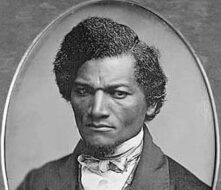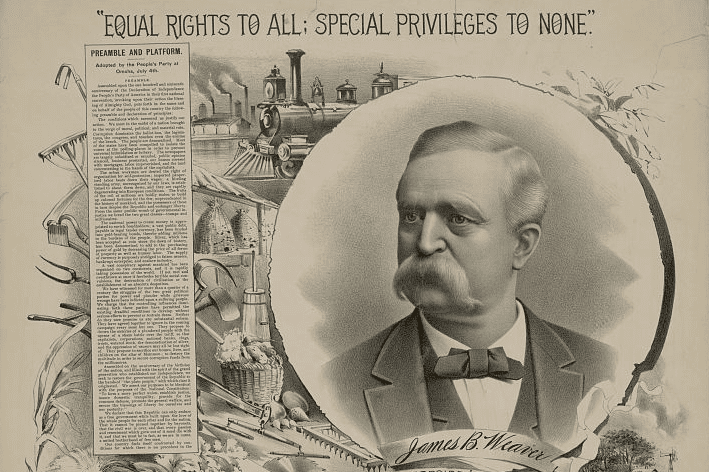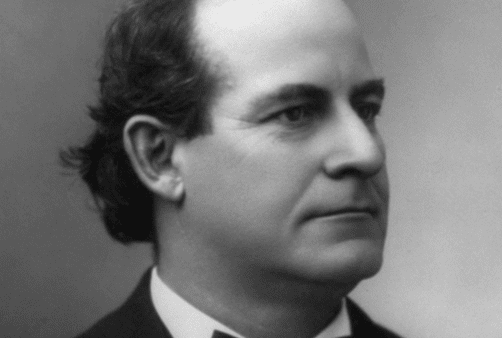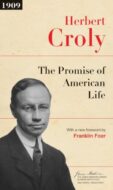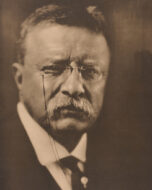
Introduction
Frank Johnson Goodnow (1859–1939) was an established academic who served as the first president of the American Political Science Association. He was the first to teach administrative law, understood as the law governing the powers and conduct of administrative agencies, in the United States, a course he taught at Columbia University. Goodnow’s work offered a new understanding of the separation of powers. Instead of understanding the American constitutional system as a division of three powers, represented by the three branches of government (legislative, executive, and judicial), Goodnow suggested that there were only two: politics and administration. Politics was the expression of the popular will while administration was the implementation of that will. In light of this new division of power, he argued, Congress should merely express the will of the people in a general sense, and leave the specific rules and regulations that carry out the public will to administrators in the other branches. Goodnow therefore envisioned a very different Congress that did not address the details of policies but merely left itself to expressing the general goals that other parts of the government should pursue.
Source: Frank Johnson Goodnow, Politics and Administration: A Study in Government (New York: Macmillan, 1900).
Chapter 1: Politics and Administration
. . . [P]olitical functions group themselves naturally under two heads, which are equally applicable to the mental operations and the actions of self-conscious personalities. That is, the action of the state as a political entity consists either in operations necessary to the expression of its will, or in operations necessary to the execution of that will. The will of the state or sovereign must be made up and formulated before political action can be had. The will of the state or sovereign must be executed, after it has been formulated, if that will is to result in governmental action. All of the actions of the state or its organs, further, are undertaken with the object, either of facilitating the expression of will or of aiding in its execution. This would seem to be the case whatever may be the formal character of the governmental system.
. . . The fact is, therefore, that not merely may these two functions be distinguished in all kinds of governments, but that in every government more or less differentiated organs are established. Each of these organs, while not perhaps confined exclusively to the discharge of one of these functions, is still characterized by the fact that its action consists largely or mainly in the discharge of one or the other. This is the solution of the problem of government which the human race has generally adopted. It is a solution, further, which is inevitable both because of psychological necessity and for reasons of economic expediency.
It is upon this fundamental distinction of governmental functions that Montesquieu’s famous theory of the separation of powers is based. In his Spirit of Laws (Book XI, Chap. VI) he distinguished three powers of government which he called respectively the legislative, executive, and judicial. This differentiation of three rather than two governmental functions was probably due to the fact that Montesquieu’s theory was derived very largely from a study of English institutions. . . . [1]
Montesquieu’s theory involved, however, not merely the recognition of separate powers of functions of government, but also the existence of separate governmental authorities, to each of which one of the powers of government was to be intrusted. . . .
This theory was, as to this point, carried much further than its author would have considered proper, and in its extreme form has been proven to be incapable of application to any concrete political organization. American experience is conclusive on this point.
At the time our early constitutions, including the national Constitution, were framed, this principle of the separation of powers with its corollary, the separation of authorities, was universally accepted in this country. It was therefore with its corollary made the basis of these instruments. . . .
This principle of the separation of powers and authorities has been proven, however, to be unworkable as a legal principle. . . . The separation of authorities, notwithstanding constitutional provisions and judicial decisions and dicta on the general subject, must therefore be regarded as existent in our constitutional law only in an attenuated form. . . .
This is true both of American and of European constitutions. No political organization, based on the general theory of a differentiation of governmental functions, has ever been established which assigns the function of expressing the will of the state exclusively to any one of the organs for which it makes provision.
Thus, the organ of government whose main function is the execution of the will of the state is often, and indeed usually, entrusted with the expression of that will in its details. These details, however, when expressed, must conform with the general principles laid down by the organ whose main duty is that of expression. That is, the authority called executive has, in almost all cases, considerable ordinance or legislative power.
On the other hand, the organ whose main duty is to express the will of the state, i.e. the legislature, has usually the power to control in one way or another the execution of the state will by that organ to which such execution is in the main entrusted. That is, while the two primary functions of government are susceptible of differentiation, the organs of government to which the discharge of these functions is entrusted cannot be clearly defined. . . .
. . . Enough has been said, it is believed, to show that there are two distinct functions of government, and that their differentiation results in a differentiation, though less complete, of the organs of government provided by the formal governmental system. These two functions of government may for purposes of convenience be designated respectively as Politics and Administration. Politics has to do with policies or expressions of state will. Administration has to do with the execution of those policies. . . .
There are, then, in all governmental systems two primary or ultimate functions of government, viz., the expression of the will of the state and the execution of that will. There are also in all states separate organs, each of which is mainly busied with the discharge of one of those functions. These functions are, respectively, politics and administration.
. . .
Chapter 5: The Effect of the Administrative System on the Relations of Politics and Administration
The administrative systems of the world belong in a greater or less degree to one of two main forms. Either officers who have in their hands the execution of the will of the state are vested, with large discretion, so much in fact as to make them really organs for the expression of the will of the state in its minor details; or they are vested with almost no discretion at all, being merely the instruments of the other state organs which determine, not only what shall be done, but also how the thing determined upon shall be done. The first system of administration bears upon it the impress of the time when there was in the organization of government no distinction between politics and administration, and when little or no attempt was made to obtain the expression of the popular will. The second evidences the extreme to which popular government has gone in the attempt to make the popular will felt in all the details of the government.
The first system of administration is . . . characterized by a hierarchy of officers . . . in which superior officers have a right of direction, control, and supervision over a host of subordinates. . . .
The second system of administration recognizes little if any relation of subordination of one officer to another, but lays emphasis on the allegiance of each to the law as laid down by the body having the right to express the will of the state. . . . Of course no concrete government ever was or could be based on exactly such principles as we have outlined. Anarchy would be the result of any such attempt. For the legislature was never organized which could exercise over such a governmental system the control necessary to ensure the carrying out of its will. Responsibility is too diffused to be effective.
At the same time the legislature may rely on officers, entrusted with the administration of justice rather than with the administration of government, to exercise the necessary control over those officers who are to execute its will. . . . That is, while important administrative officers may be subjected to the control of the courts in their execution of the law, they may be relieved almost entirely from the control and supervision of any administrative superior, and may be subject to legislative control only to the extent that the legislature may regulate their powers and duties in great detail. They owe allegiance to the law contained in this detailed legislation, which they may be forced by the courts to observe.
This system of administration is usually accompanied by extreme decentralization from the point of view of the relations of the state to the local communities. It has been termed “a government of laws, and not of men.” It has unquestioned advantages, particularly in retarding the development of despotism and in preventing arbitrary administrative action; but it makes the development of the administrative function free from the influences of politics almost impossible, since it tends to promote interference by the legislature, a distinctly political body, in all matters of government. . . .
. . . The system of administration which has just been described was the system which was either adopted by the states of the American Union at the time of their formation or was soon after developed. It was a logical development of that brought here from England. . . . Local administrative officers owed allegiance to the law of the land, i.e., the statues of Parliament, rather than to a central administrative superior; and their obedience to that law was secured by their subjection to the control of the courts.
. . . It was only natural, therefore, that the administrative system which in these struggles had been tried and not found wanting should be adopted in the new state governments established in America at the end of the eighteenth century. . . .
The result was to make impossible any state administrative supervision over the main body of officers entrusted with the execution of the law. All the control which could be exercised in the governmental system in the interest of producing coordination between the functions of expressing and executing the will of the state had to be found in the power of the legislature to regulate in detail the duties of officers entrusted with the execution of the law. . . .
All the legislature could do, if it were dissatisfied with the way in which officers acted who were entrusted with the execution of the law, was to regulate their duties in more detail, trusting to the courts to enforce its mandates. . . .
Now, if the government was to go on harmoniously, some means of coordinating the expression of the will of the state had to be found. Such means could not be found in the governmental system, as has been shown. It had therefore to be found outside of the government in some extra-legal institution. It was, as a matter of fact, found in the political party. The party took upon itself the burden of selecting, not merely the members of the body which, by the theory of the governmental system, expressed the will of the state (i.e., the legislature), but also those persons who were to execute that will (i.e., the executive officers). . . . To do this work the party organization had to be both strong and permanent. . . .
It is mainly because of the absolute necessity for the coordination of the functions of politics and administration…that party regularity, as it is called, has been so prized in the United States[2]. . . .
This centralization of administration toward which we have gradually, and it would seem irresistibly, tended, appears therefore to involve the recognition of a sphere of government in which politics are to have much less influence than has been accorded to them in the past. The recognition of such a sphere of government is made possible because the necessary political control over administration under the system of administrative centralization may be obtained through the power of the party over the legislature and the officers at the head of the administration. It is also made necessary if we are to hope for any great administrative efficiency. . . .
The tendency toward administrative centralization should therefore be encouraged and not hindered. We should remember that in our traditional fear of centralization we have been frightened by a bogie which has been conjured up by designing persons conscious that a proper organization of our administrative system will work to their disadvantage. We should, however, insist that this centralization should be accompanied by a fuller recognition of a sphere of government where the influence of politics is baneful. Insistence upon this point is necessary, both from the point of view of administrative efficiency and from the point of view of the existence of popular government itself.
A centralized administrative system, in which the influence of politics is strong, can easily be made use of to further the interests of the political party at the expense of ease in the expression of the popular will. . . . The party in control of the governmental offices has made use of them not merely to influence the expression of the popular will, but actually to thwart it when once expressed. . . . Popular government may thus be lost almost without our knowing it, and without any important changes in our general form of government. That it has been lost in this way in the past history of the world cannot be denied. That it shall not be lost in our own case, depends very largely on our ability to prevent politics from exercising too great an influence over administration, and the parties in control of the administration from using it to influence improperly the expression of the public will.
- 1. Montesquieu, or Charles-Louis de Secondat, Baron de La Brede and de Montesquieu (1689–1755), was a French political philosopher who is today most well-known for his book The Spirit of the Laws, which among other things articulated the theory of separation of powers. Montesquieu profoundly affected the thought of the American Founders and the design of the U.S. Constitution. During the period when the U.S. Constitution was being written and ratified, Montesquieu’s work was cited more often in America than any other political philosopher.
- 2. The idea of “party regularity” holds that representatives in the government should, except in fundamental matters of conscience, follow the will of their party rather than their own individual judgment. It holds, as corollaries, that institutions should be structured to promote loyalty, coordination, and cohesion among the party rather than individualized decisionmaking. This tends to promote majority rule, and by the turn of the twentieth century the theory was being defended in Congress and in the public press. See, for instance, "Rules of the House of Representatives", “Obstructions in the National House” and “A Deliberative Body”, The “Revolt of 1910” Against Speaker Joseph Cannon, and Speech on Party Leadership in Congress.
Inaugural Address (1901)
March 04, 1901
Conversation-based seminars for collegial PD, one-day and multi-day seminars, graduate credit seminars (MA degree), online and in-person.


















